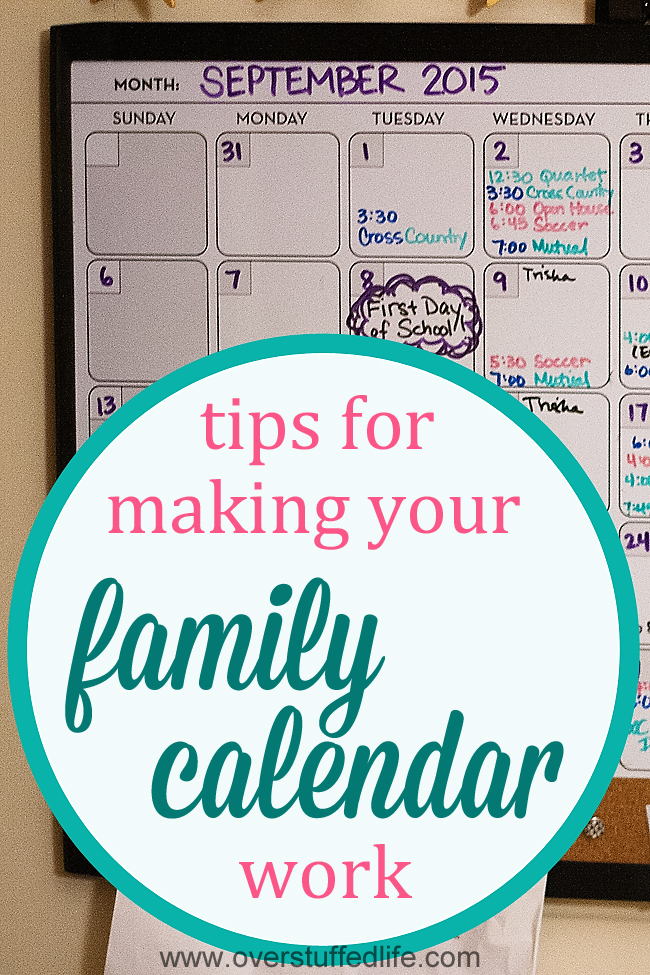8 Tips for Holding an Effective Family Council
Family meetings are important for scheduling, goal-setting, and family unity

(Like my planner? Me too! You can get one here: Mom on the Go Planner.)
Keeping track of a family’s schedule is difficult, but even harder is staying on top of the coordination of a family schedule. And it’s not just the schedule, either. It’s the fees the kids need for school or their activities, it’s when certain homework projects are due, it’s figuring out which parent is taking the kids to music lessons this week.
All of these things cannot be discerned by simply looking at your family calendar. The family calendar is an important tool and it saves my life on a regular basis, but it cannot text my neighbor to see if she can take my youngest daughter to dance this week because I have another conflict. It cannot tell me if my middle daughter has remembered to turn in her cross-country uniform once the season is over. It cannot tell me that my oldest daughter has invited all of her friends over this Saturday for an all-day-get-ready-for-the-homecoming-dance party.
The family calendar is only part of keeping your home running smoothly.
The only way the family calendar can really work is via communication. Lots and lots of communication.
Enter the family planning meeting.
You can definitely sit your family down once in a while and find out what’s on the schedule, and think that’s good enough. No. It’s no different than just relying on the calendar to tell you everything. You need to really use your family planning time effectively so that your household will run without a hitch—and be happier for it.
We prefer to call our planning meetings “family council.” This allows us to do more with it than just work out scheduling. Following are 8 tips that will help make your family councils as effective as possible, and to get the most return on the time spent doing it.
How to have an effective family council meeting
1. Hold consistent family meetings—weekly if possible.
It should come as no surprise that consistency is the key to a successful family council. If you know me at all, it will also be no surprise to you that we are most definitely NOT consistent with these. This is something I’m always working on, too.
When we do hold these meetings weekly, I feel so much more calm throughout the week because I have a contingency plan—I know what should happen, but I also know what the possible snafus might be, and I can plan accordingly. When we hold the meetings only some of the time, I feel much more frenetic and stressed on the days for which I don’t have clear plans made.
Consistency is also important because it is habit-forming. The kids will start to expect it, and it will just become something you always do. Everyone will feel more organized and ready for the week when it starts off with a good family council.
2. Begin and end with prayer.
It is my experience that when we bring the Lord into our family planning sessions, everything goes much more smoothly. Including Him and asking for His help can never be a bad thing, and will help you to make decisions that are more in line with the Lord’s will. If you are a religious family, utilizing prayer in your family council meetings is very helpful.
3. Give every family member the chance to speak.
Make sure each member of your family has time to talk—no matter what their age. They may not be old enough to be totally aware of their schedules yet, but they will have something to say.
Remember that these meetings are not just for schedule correlation, they are for the family to discuss how everything is going and to come up with solutions to problems. Your preschooler may want to talk about something that is bothering her at school, or she may just want to say how much she loves school. Your tween may want to talk about friend issues, or ask for input on an assignment she has been given. And your teenager will have a chance to tell you all about her plans for that homecoming party she decided to have.
Even more important than the schedule is that each family member has a chance to feel heard. To know that they each play a significant role in the family and that their parents and siblings care about them.
4. Find solutions together
When we come up against scheduling difficulties or the kids bring up the difficult things they are dealing with in their lives, I am always pleasantly surprised at the solutions the kids come up with to help. Sometimes I think my husband and I have it all figured out, but the girls have really opened my eyes up to the fact that we definitely don’t.
The girls are good at thinking outside the box and being willing to reschedule things if necessary. They are good at giving each other advice and support. And they are good at taking responsibility for their own plans and doing whatever it takes for them to be able to carry them out.
Don’t fall into the trap of providing all the solutions just because you are the parents. Remember that it is a family council, and counsel together until the best solution is found.
5. Set family and personal goals
This meeting is a great time to set a few goals for the week. Talk about what things you would like to see happen in your home. Give the kids a chance to do the same. Decide family goals together.
And while personal goals may be too private, don’t hesitate to share one or two of the things you are hoping to work on personally during the week. Invite your children to do the same if they are comfortable sharing. I like it when my kids know what some of my personal goals are because they can be some of the best accountability partners I know!
Even if your kids don’t want to share their personal goals, it’s a good time to remind them to make them.
6. Evaluate the previous week
A huge part of success in goal setting is evaluation. Other things that may need evaluation in a family council include children’s grades, how chores are working, whether or not that cross-country uniform was turned in, if expectations are being met, or even how the budget is going.
7. Write everything down—in multiple places!
During our meetings I am writing in my planner, my Google calendar (which I only just started using, mostly so my husband can see my full schedule more easily)(but I sure do like the phone alerts), and the family calendar. My husband is entering things into his Google calendar, and the kids should have some sort of notebook or student planner as well.
I make sure to write in my planner all of the logistics that go beyond the schedule, too. If I don’t write down all of the scheduling solutions we thought of during our meeting, I will not remember them when they come up. This is particularly important in our family because we only have one car and it takes a little bit more coordination than it would if we had two.
My mom recently gifted me with this cool family council journal. It’s a great way to not only keep track of schedule, but everything discussed during your family councils.
8. Give out allowance
This meeting is also a great time to hand out allowance. It goes hand-in-hand with evaluation, since they earn their allowance based on the chores they do. When we hand out allowance we are sure to remind the kids to save part of it, and to set aside 10% to pay their tithing as well.
Related: Our Allowance System
We accomplish a lot during these family meetings, and when we are consistently doing them, they don’t actually take much time. The hour or so it does take out of our Sunday nap time is totally worth it! Our home runs more smoothly, our schedule works out, our relationships improve, and we are all happier.

This post is part of my 31 Days to a Happier Home series.
To see all the posts in this series, click here: 31 Days to a Happier Home
This post may contain affiliate links, for more information, please see my disclosure.



